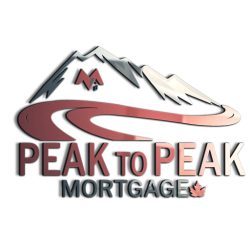Without a doubt, a mortgage pre-approval is an important first step to take before you actively start looking at real estate. But what exactly does a mortgage pre-approval mean in today’s lending environment? Why should you still write your offer with subject to financing?
It is important to note that if you are planning on purchasing with less than 20% down, you will need high ratio approval from one of Canada’s mortgage insurers. None of these insurers pre-approve financing because so much depends on the property information. The insurers only underwrite “live” deals.
For this reason, I highly recommend that any offers be written with subject to financing, because whether you are securing a high ratio or conventional approval, the actual property you end up purchasing will be a critical component in the banks’ & insurers’ risk assessment.
Here are some of the property factors that they take into consideration:
- Does the property meet their minimum square footage guidelines?
- Are there any special assessments outstanding for strata complex repairs?
- Are there any age restrictions for the complex?
- Does the purchase price include any furniture?
- Is the property part of a rental pool?
- Is the property leasehold?
- Are there any special covenants registered on the title?
- Where is the property located?
- If it is in a smaller town that has a lower population, some banks may reduce their level of financing, or not lend in that area at all.
- In situations of older single family homes, what is the land value & what is the value of the dwelling? Not enough value in the actual dwelling could mean that you end up with a lot loan instead of a mortgage.
- Lot size and other structures or outbuildings. Many lenders will only lend on the value of the main home + 5 or 10 acres. If the property is larger than 5 or 10 acres, and there are multiple buildings on the land, the bank may not recognize the lending value equal to the purchase price. The bank will ask the appraiser to confirm the value of the property just on the main home + the allowable acreage.
- When is the completion date of the purchase? A closing date outside of a 120 window does not have a guaranteed rate, and any upward rate changes prior to, could impact how you qualify.
- Suite rental income. Is the suite authorized or unauthorized? It makes a difference for some lenders, and some insurers.
- If the home needs work, will the mortgage be a purchase + improvements?
- Was the property previously used as a grow op?
- Is there the presence of an oil tank on the property?
- Any other disclosure on the Property Condition Disclosure Statement (part of the purchase contract), that could trigger more questioning from the lender or insurer.
- Other property factors that will influence how you qualify are the property taxes and strata fees for the property. When we arrange a pre-approval, we estimate what we feel is reasonable for property tax & strata maintenance fee figures, but they are just estimates. Once you have an accepted offer, the bank will check to make sure the property taxes and strata fees are accurate and that you still qualify for the financing.
When is a pre-approval not available?
- When we are looking for an “equity” or “stated income” approval based on the level of your down payment rather than your declared income.
- Unique property types, ie industrial, large acreages, homes with outbuildings that contribute significantly to the property value & purchase price.
- Large loan requests for high value properties.
- Unique zoning.
- Situations when someone has impaired credit and their credit score does not meet minimum lending guidelines.
- Any situation where an exception to lending policy is required.
Why a pre-approval is still a good idea:
- Going through the pre-approval process gives you an idea of the purchase price range you can qualify for based on your verifiable income, available downpayment, and your credit score.
- The process illuminates any potential areas of difficulty, ie understanding your credit and how your debts impact how much you qualify for a mortgage. Are there any credit issues that need to be rectified? Debts that need to be paid down?
- Paperwork. Arranging a mortgage pre-approval lets you get a head start on organizing the documents the lenders will ask for.
- You will know how much money you will need to cover your minimum downpayment and your closing costs.
- Rate guarantees are available up to 120 days. This protects you in a rising or unstable rate market when you are actively shopping for a home. If rates are lower when you have an accepted offer, you will get the lower rate, but if rates have gone up, you are protected as long as your closing date is within the rate guarantee time frame.
- The more information you have up front before you purchase, the smoother your transaction will be when you write an offer.
If you have any questions about pre-approvals, or would like to arrange for one, please do not hesitate with any questions at any time. You can apply online here.

